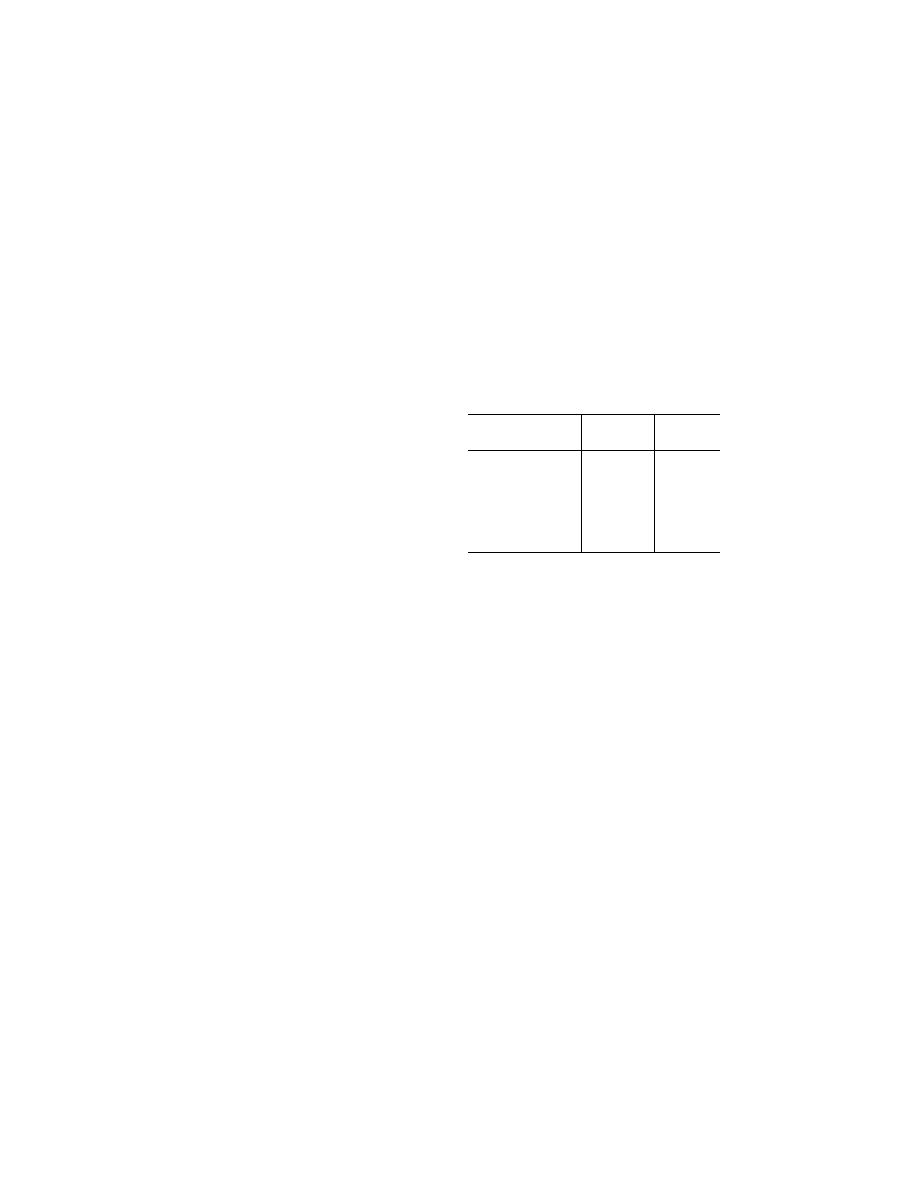
246
14 CFR Ch. I (1–1–19 Edition)
§ 25.393
(e) Auxiliary aerodynamic surfaces,
in § 25.445.
[Doc. No. 5066, 29 FR 18291, Dec. 24, 1964, as
amended by Amdt. 25–86, 61 FR 5222, Feb. 9,
1996; Amdt. 25–141, 79 FR 73468, Dec. 11, 2014]
§ 25.393
Loads parallel to hinge line.
(a) Control surfaces and supporting
hinge brackets must be designed for in-
ertia loads acting parallel to the hinge
line.
(b) In the absence of more rational
data, the inertia loads may be assumed
to be equal to
KW,
where—
(1)
K
= 24 for vertical surfaces;
(2)
K
= 12 for horizontal surfaces; and
(3)
W
= weight of the movable sur-
faces.
§ 25.395
Control system.
(a) Longitudinal, lateral, directional,
and drag control system and their sup-
porting structures must be designed for
loads corresponding to 125 percent of
the computed hinge moments of the
movable control surface in the condi-
tions prescribed in § 25.391.
(b) The system limit loads of para-
graph (a) of this section need not ex-
ceed the loads that can be produced by
the pilot (or pilots) and by automatic
or power devices operating the con-
trols.
(c) The loads must not be less than
those resulting from application of the
minimum forces prescribed in
§ 25.397(c).
[Doc. No. 5066, 29 FR 18291, Dec. 24, 1964, as
amended by Amdt. 25–23, 35 FR 5672, Apr. 8,
1970; Amdt. 25–72, 55 FR 29776, July 20, 1990;
Amdt. 25–141, 79 FR 73468, Dec. 11, 2014]
§ 25.397
Control system loads.
(a)
General.
The maximum and min-
imum pilot forces, specified in para-
graph (c) of this section, are assumed
to act at the appropriate control grips
or pads (in a manner simulating flight
conditions) and to be reacted at the at-
tachment of the control system to the
control surface horn.
(b)
Pilot effort effects.
In the control
surface flight loading condition, the air
loads on movable surfaces and the cor-
responding deflections need not exceed
those that would result in flight from
the application of any pilot force with-
in the ranges specified in paragraph (c)
of this section. Two-thirds of the max-
imum values specified for the aileron
and elevator may be used if control
surface hinge moments are based on re-
liable data. In applying this criterion,
the effects of servo mechanisms, tabs,
and automatic pilot systems, must be
considered.
(c)
Limit pilot forces and torques.
The
limit pilot forces and torques are as
follows:
Control
Maximum
forces or
torques
Minimum
forces or
torques
Aileron:
Stick ..............................
100 lbs ............
40 lbs.
Wheel
1
..........................
80 D in.-lbs
2
...
40 D in.-lbs.
Elevator:
Stick ..............................
250 lbs ............
100 lbs.
Wheel (symmetrical) .....
300 lbs ............
100 lbs.
Wheel (unsymmetrical)
3
.........................
100
lbs.
Rudder ..............................
300 lbs ............
130 lbs.
1
The critical parts of the aileron control system must be de-
signed for a single tangential force with a limit value equal to
1.25 times the couple force determined from these criteria.
2
D
= wheel diameter (inches).
3
The unsymmetrical forces must be applied at one of the
normal handgrip points on the periphery of the control wheel.
[Doc. No. 5066, 29 FR 18291, Dec. 24, 1964, as
amended by Amdt. 25–38, 41 FR 55466, Dec. 20,
1976; Amdt. 25–72, 55 FR 29776, July 20, 1990]
§ 25.399
Dual control system.
(a) Each dual control system must be
designed for the pilots operating in op-
position, using individual pilot forces
not less than—
(1) 0.75 times those obtained under
§ 25.395; or
(2) The minimum forces specified in
§ 25.397(c).
(b) The control system must be de-
signed for pilot forces applied in the
same direction, using individual pilot
forces not less than 0.75 times those ob-
tained under § 25.395.
§ 25.405
Secondary control system.
Secondary controls, such as wheel
brake, spoiler, and tab controls, must
be designed for the maximum forces
that a pilot is likely to apply to those
controls. The following values may be
used:
VerDate Sep<11>2014
12:50 Apr 30, 2019
Jkt 247046
PO 00000
Frm 00256
Fmt 8010
Sfmt 8010
Y:\SGML\247046.XXX
247046
spaschal on DSK3GDR082PROD with CFR